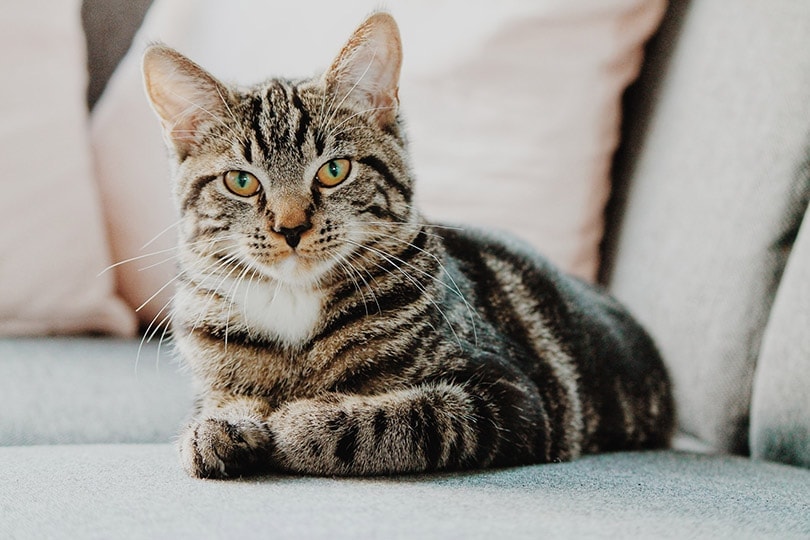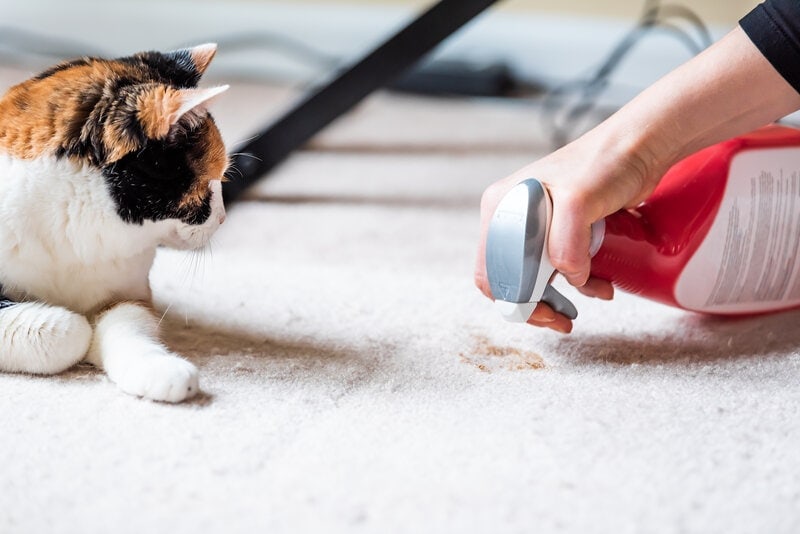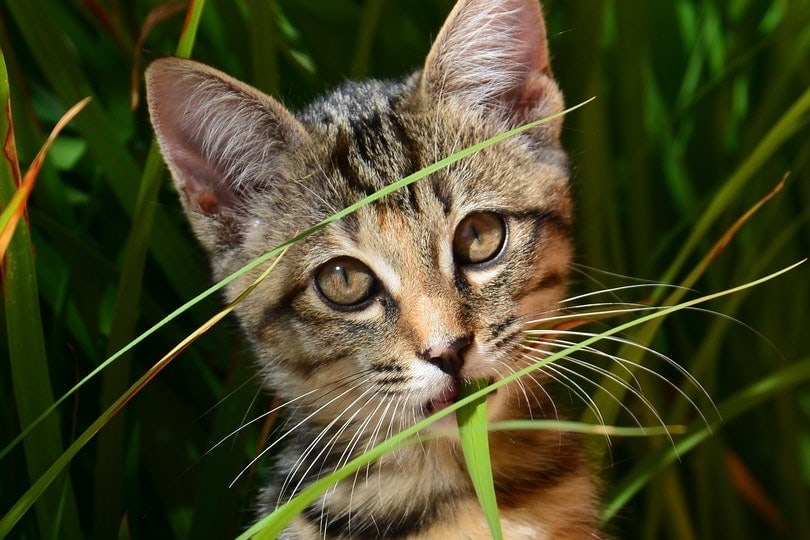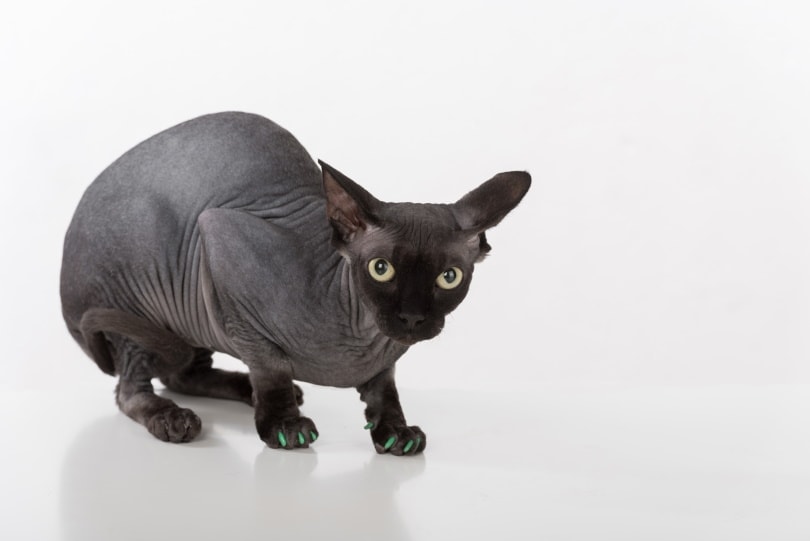You love a good glass of orange juice, particularly when it’s freshly squeezed and accompanies an especially satisfying breakfast. If your cat seems to be showing interest in your juice, is it safe to offer her some? Can cats drink orange juice? The short answer is no. While orange juice can be nutritionally healthy for humans, it might make your cat sick. We’ll have a look at why you shouldn’t give your cat citrus fruit of any kind and what you should do if your cat actually drinks any.
The Healthy Orange

Oranges are members of the citrus family of fruit and are one of the world’s most popular fruits. They grow on trees in the warmest parts of the world—South Africa, the Mediterranean, Australia, and parts of the United States (who doesn’t think of Florida when they think of oranges!).
Oranges are jam-packed with thiamine, fiber, antioxidants, folate, and of course, vitamin C.
- Helps stop kidney stones from forming
- Encourages a healthy heart by preventing heart disease
- Helps boost the immune system and effective against the cold
- Helps prevent anemia
Is there a downside to eating oranges or drinking orange juice? There actually is.
Problems with Oranges

Oranges might cause heartburn because they contain ascorbic and citric acids, all of which are organic but acidic.
And, of course, orange juice is a more concentrated version of the orange. It contains less fiber and has twice as much natural sugar (one cup of orange juice contains as much sugar as two whole oranges). This can contribute to health problems and weight gain, particularly if the orange juice has added sugar. It’s usually best to stick with whole oranges or orange juice in moderation. And always opt for orange juice without any added sugar.
But what about cats? We’ll start by looking at a cat’s typical diet.
A Cat’s Diet
Cats are meat eaters. In fact, they are obligate carnivores, which means that they get all of their nutritional needs from animal products. Cats cannot be vegetarian as they will become quite ill and will not thrive or remain healthy without a source of meat. In fact, a cat’s digestive system is not designed to digest plant material—the nutrients from meat are what allow them to live.
So, what happens if your cat drinks orange juice?
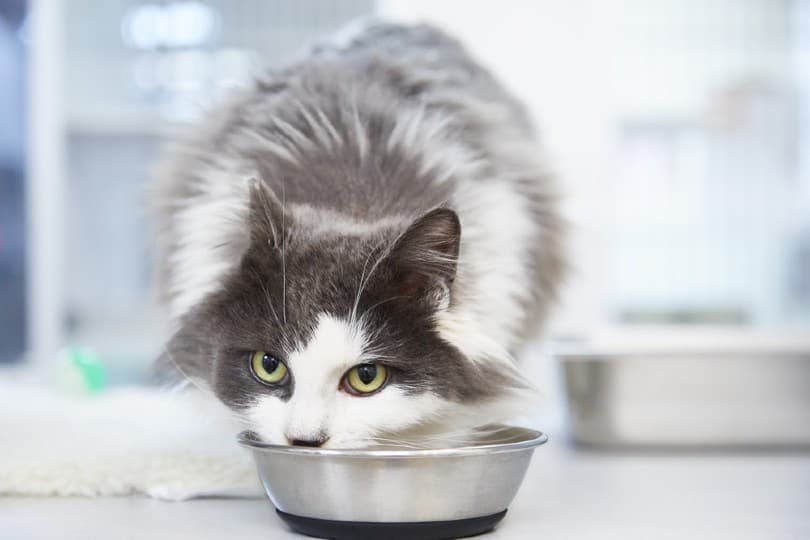
The Downside of Orange Juice for Cats
Oranges have 5 different aspects that can have a negative impact on cats.
Psoralens
Psoralens is a naturally occurring compound that is found in a number of plants, which includes all citrus fruits. Psoralens actually cause the skin to become light-sensitive, and the juice of the orange can technically cause the skin to become a little more sensitive to sunlight and consequently could burn easily.
Some studies show that if you consume a lot of orange juice, it slightly increases the chance of malignant melanomas. It doesn’t confirm that psoralens are harmful to cats, but it’s always better to be safe than sorry.
Citric acid
Oranges are chock full of citric acid, which can be quite toxic for your cat. Eating just a little bit of orange can lead to irritation and upset stomach as well as central nervous system depression.
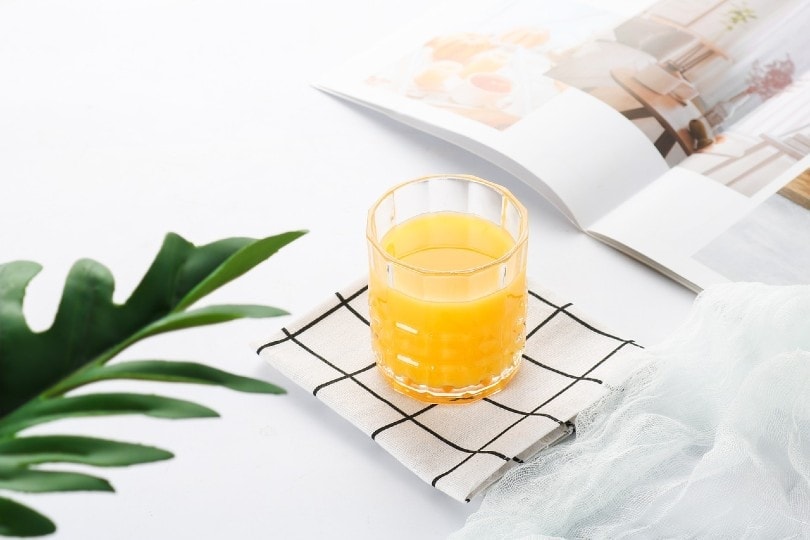
Essential oils
Orange peel is full of essential oil, which is what gives them their distinctive and amazing aroma. However, essential oils are quite toxic for cats. Cats lack the cytochrome P450 enzyme in their livers that assists in eliminating and metabolizing drugs, medications, and essential oils.
Essential oils are commonly used as a deterrent for cats. If your cat engages in naughty behavior such as chewing cords or scratching your expensive sofa, some people have resorted to spraying these areas with citrus essential oils mixed with water as cats naturally dislike the scent.
Sugar
Oranges are naturally sweet but orange juice, as previously mentioned, has twice as much sugar as an orange. The same reason a lot of orange juice might prove unhealthy for us will also work against a cat. Excess sugar can cause dental issues for your cat, increase blood sugar levels, and can cause weight gain.
- See also: Can Cats Drink Apple Juice?
Allergies
This is a little rarer, but some cats might develop an allergic reaction to oranges. Particularly, dermatitis due to food allergies.
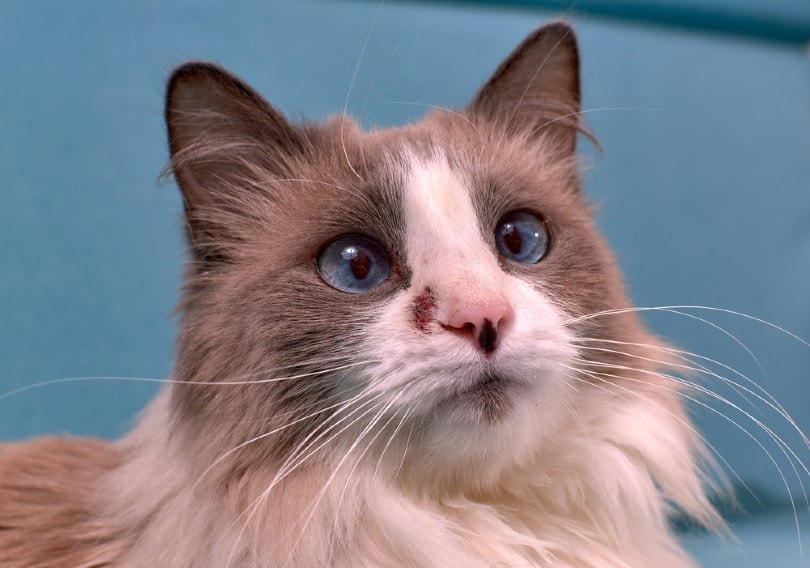
Symptoms
- Vomiting
- Depression
- Diarrhea
- Dermatitis
- Breathing problems
- Vomiting
- Staggering and wobbling
- Low heart rate
- Drooling
- Tremors
- Low body temperature
- Liver failure
The fruit itself isn’t as problematic as the skin, leaves, or seeds. If you suspect your cat might have ingested any of these parts of a citrus fruit, take her to your vet as soon as possible, particularly if you notice any of the above symptoms.
Conclusion
The good news is that the majority of cats are repelled by the smell of anything citrus, so the chances of your cat eating an orange or drinking orange juice are pretty slim. The fruit of the orange itself in tiny amounts will probably not hurt your cat, but if you suspect your cat has ingested any of the rind or seeds, keep a close eye on her and take her to your vet if she starts exhibiting any worrisome symptoms.
Cats actually make their own vitamin C, so they won’t benefit from eating citrus in any way, and in most cases, they’ll run away at the smell of it regardless. So, while drinking a glass of orange juice might be a healthy and enjoyable treat for you, do not attempt to give any to your cat, as it will do more harm than good.
Featured Image Credit: Andy M., Pixabay



